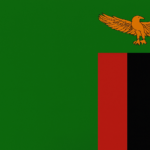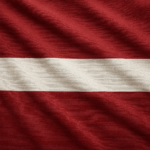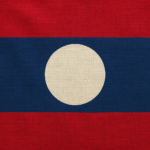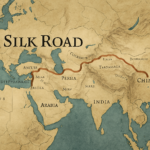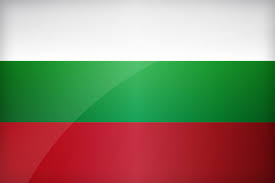
Bulgaria’s history is deeply rooted in ancient times, with evidence of human habitation dating back to around 7000 BC. During this time, the region was inhabited by various Thracian tribes, which played a crucial role in shaping the cultural heritage of Bulgaria.
Bulgaria officially traces its roots to the year 681 AD when Khan Asparuh established the First Bulgarian Empire. This marked the beginning of a distinct Bulgarian state and culture, and Asparuh is considered a founding figure in Bulgarian history.
In the early 11th century, the Byzantine Empire conquered Bulgaria, leading to a period of Byzantine rule that lasted for several centuries. This era saw the assimilation of Byzantine culture into Bulgarian society, leaving a lasting impact on the nation’s traditions and art.
Bulgaria faced a significant turning point when the Ottoman Empire conquered the country in 1396. This marked the start of nearly 500 years of Ottoman rule, a period characterized by significant cultural and social changes in Bulgaria.
Bulgaria’s status as one of Europe’s oldest countries is a testament to its enduring historical significance. Over the course of more than a millennium, Bulgaria has weathered numerous challenges and transformations, contributing to the rich tapestry of European history.
As of my last knowledge update in 2021, Bulgaria had a population of approximately 7.4 million people. The demographics of Bulgaria have evolved over time, influenced by historical events, migrations, and changes in political and economic systems.
The year 1946 marked a pivotal moment in Bulgaria’s history when it transitioned into a communist state under Soviet influence. This period had a profound impact on Bulgarian society, politics, and economics for several decades.
The fall of communism in Bulgaria in 1989 ushered in a new era of political and economic transformation. The country transitioned to a democratic government, symbolizing a shift toward greater freedom and openness.
Bulgaria’s accession to the European Union in 2004 was a significant milestone in its modern history. Joining the EU opened up new opportunities for trade, investment, and cooperation with other European nations.
Bulgaria’s diverse geography is characterized by 23 mountain ranges, including the impressive Rila and Pirin Mountains. These natural wonders provide both recreational opportunities and a stunning backdrop to the country’s landscapes, making Bulgaria a destination for outdoor enthusiasts and nature lovers.
Bulgaria’s highest peak, Musala, rises to an impressive 3,262 meters (10,699 feet) above sea level. It is part of the Rila Mountain range and attracts hikers, mountaineers, and nature enthusiasts from around the world. Musala’s stunning vistas and challenging trails make it a prominent destination for outdoor adventurers.
The Cyrillic alphabet, used in Bulgaria and other Slavic countries, was developed by Saints Cyril and Methodius in the 9th century. This alphabet comprises 30 characters, making it an essential cultural and linguistic element in Bulgaria’s history. It has played a crucial role in preserving the Bulgarian language and fostering literacy.
In 2021, Bulgaria’s GDP per capita was approximately $7,736 USD, making it one of the European Union’s countries with the lowest economic prosperity. The country has faced economic challenges and disparities that have shaped its modern development.
Bulgaria is home to a remarkable array of cultural and natural treasures, boasting nine UNESCO World Heritage Sites. These include the ancient city of Nessebar, which is known for its well-preserved historic architecture, and the Rila Monastery, a stunning example of Bulgarian Orthodox Christian architecture and art.
Around 30% of Bulgaria’s territory is covered by lush forests. This abundant woodland is a source of natural beauty, biodiversity, and economic importance. The country’s forests provide resources such as timber and also serve as recreational areas.
Bulgaria has a deep-rooted tradition of wine-making that stretches back over 4,000 years. The fertile soil and favorable climate in regions like the Thracian Valley have made Bulgaria known for its wine production. The country’s winemakers craft a wide variety of wines, contributing to Bulgaria’s reputation as a wine-producing nation.
After the Russo-Turkish War, Bulgaria gained its independence from the Ottoman Empire in 1878. This marked a significant moment in Bulgarian history as the country reclaimed its sovereignty and embarked on a path toward nation-building.
Bulgaria is renowned for its yogurt, and it is believed to be the birthplace of yogurt. With more than five thousand yogurt varieties produced in the country, yogurt holds a special place in Bulgarian cuisine and culture. It is often enjoyed with a variety of toppings and is considered a healthy food option.
Bulgaria’s Rose Valley is responsible for producing over 85% of the world’s rose oil. It takes approximately 8 million roses to extract just one liter of this precious oil. Rose oil is highly sought after for its use in perfumes and cosmetics.
As of 2021, Bulgaria had one of the highest unemployment rates in the European Union, standing at around 8.6%. This economic challenge has been a focus of government efforts to stimulate job growth and improve living standards in the country.
During World War II, Bulgaria was occupied by Nazi Germany, but in 1944, the Soviet Red Army played a significant role in liberating the country from Nazi occupation. This event marked a turning point in Bulgaria’s history, leading to a change in its alignment during the post-war period.
The year 1990 was pivotal in Bulgaria’s history as it marked the first democratic elections following the fall of communism. This transition from a one-party communist state to a multi-party democracy brought political pluralism, freedom of expression, and a new era of governance to the country.
The official currency of Bulgaria is the Bulgarian Lev, abbreviated as BGN. It has been in use since 1999 when it replaced the hyperinflated Bulgarian Hyperinflation. The currency’s stability is vital for the country’s economic development and integration into the European Union.
Bulgaria boasts a rich monastic tradition, with over 1300 monastic complexes scattered throughout the country. These monasteries are not only places of worship and spiritual retreat but also repositories of historical and artistic treasures, preserving the nation’s cultural heritage.
Bulgaria is proud to have two cities designated as UNESCO Cities of Literature: Sofia, the capital, and Plovdiv, another major cultural hub. This recognition highlights the significant literary heritage of Bulgaria, including famous authors like Ivan Vazov and Elias Canetti, who have contributed to the country’s vibrant literary tradition.
